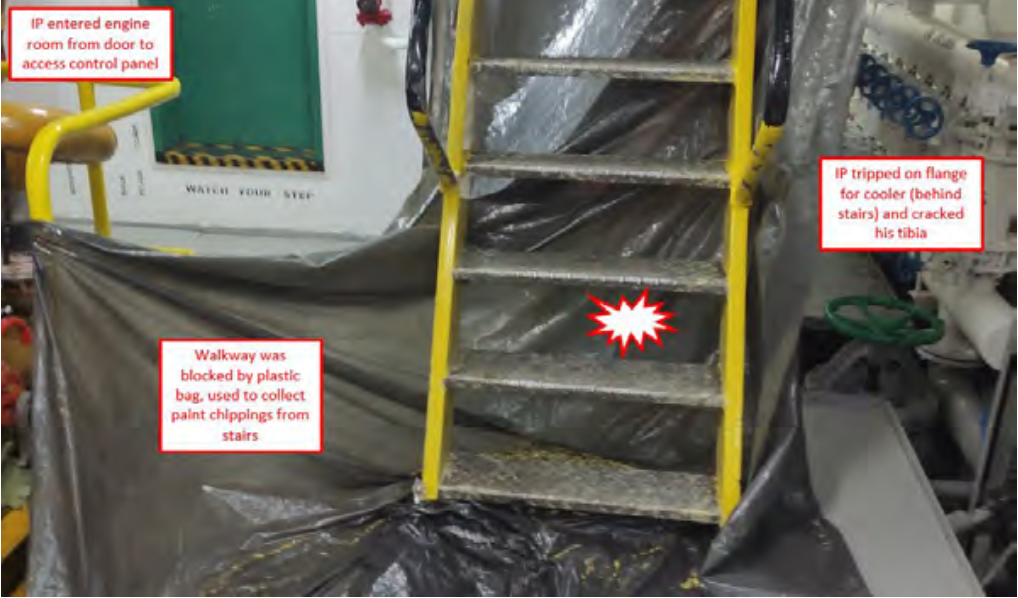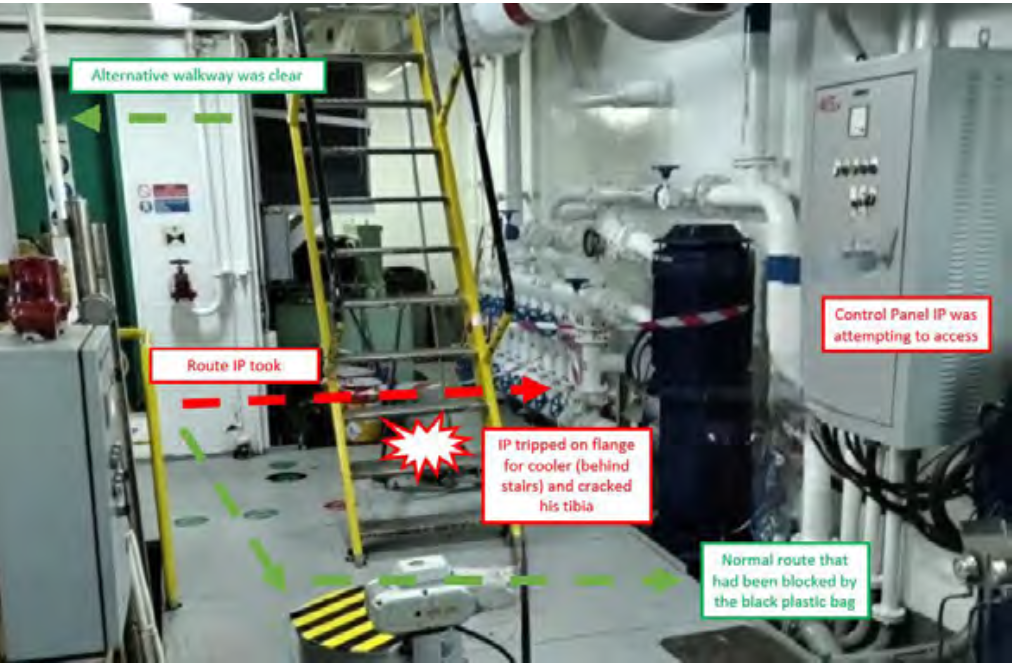LTI – crew person cracked shin bone
What happened
An engineer suffered a broken shin when he slipped taking a shortcut into the engine room. He went into the engine room down some stairs, in order to access a control panel, and found that access to the control panel was blocked by a plastic bag installed to collect paint chippings from maintenance work on the stairs. He took an alternative route behind the staircase, hit the stairs with his right shoulder, and lost his balance. He fell in such a way as to hit his ankle on a valve on the floor of the engine room, causing a cracked tibia (shin bone).


What went wrong
- No-one stopped to think:
- Maintenance work created new, additional hazards – the crew conducting the maintenance work had blocked the walkway;
- There were no barriers or controls in place to stop anyone from using the stairs being maintained, nor was the available alternative route highlighted;
- The crew doing the maintenance work had not communicated what they were doing to the engineers;
- The engineer took an unnecessary shortcut when there was an easily accessible walkway to the control panel.
- None of this was identified in any risk assessment or pre-job toolbox talk.
Our member noted the following learnings
- Understand the need for thorough risk assessment that identifies all potential hazard including that which might arise from maintenance work;
- Ensure effective communication is in place between departments, shifts, crews etc especially with regard to blocked access, maintenance, and any simultaneous operations going on;
- Ensure proper signage and physical barriers are in place where required during maintenance work;
- Take FIVE…STOP!! Think and look again. Remember you have a right and a duty to STOP THE JOB it if it is unsafe.
Members may wish to refer to
Safety Event
Published: 1 July 2023
Download: IMCA SF 16/23
IMCA Safety Flashes
Submit a Report
IMCA Safety Flashes summarise key safety matters and incidents, allowing lessons to be more easily learnt for the benefit of all. The effectiveness of the IMCA Safety Flash system depends on Members sharing information and so avoiding repeat incidents. Please consider adding [email protected] to your internal distribution list for safety alerts or manually submitting information on incidents you consider may be relevant. All information is anonymised or sanitised, as appropriate.
IMCA’s store terms and conditions (https://www.imca-int.com/legal-notices/terms/) apply to all downloads from IMCA’s website, including this document.
IMCA makes every effort to ensure the accuracy and reliability of the data contained in the documents it publishes, but IMCA shall not be liable for any guidance and/or recommendation and/or statement herein contained. The information contained in this document does not fulfil or replace any individual’s or Member's legal, regulatory or other duties or obligations in respect of their operations. Individuals and Members remain solely responsible for the safe, lawful and proper conduct of their operations.
